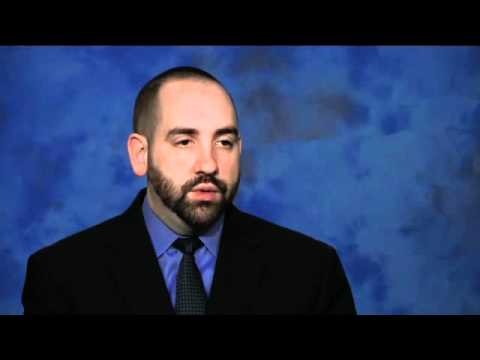7 Things You Must Do To Successfully Prepare For Retirement
Post on: 19 Апрель, 2015 No Comment

With 10,000 boomers turning 65 each day, many eyes are watching the sand in their job hourglasses drain. But before they accept their gold watch — does anyone even get gold watches anymore? — here are seven important things everyone should do in the months before they retire.
Actually pay attention to Social Security.
When you start to collect Social Security impacts how much you get for the rest of your life. The longer you delay the start of benefits, the more you will get monthly. For people born between 1943 and 1954, the full retirement age is 66. If those folks start collecting at 62 — the youngest they are allowed to — their monthly benefits will be 75 percent of what they would have been had they waited until 66. Same thing if they start up their benefits at 65 — they get 93.3 percent of what they would have gotten had they waited that extra year. Social Security also gives you a bonus if you delay the start of benefits; for people born after 1943, the amount you get is an extra 8 percent for every year you delay collecting Social Security up until age 70. That could increase your monthly check by a decent chunk of change.
Square away your housing.
If you think you want to downsize and redirect some of your equity, it makes sense for a few reasons to do it before you stop working. For one, if you need a mortgage — no matter how small — it’s harder to get without a pay check, no matter how much you put down or what your loan-to-value ratio is. Lenders want to see that you have income. It’s also helpful to know just how much your home is worth in the current market, especially if part of your retirement plan is to live off some of the equity.
But there is a larger question you need to figure out too: If you are taking money out of your home, where should it go? The short answer is — into something that earns money for you. Some people may want to use their home equity to start a business. Others may want to invest it in something that pays dividends.
Some others may consider buying rental property with the equity in their homes. The logic goes that while your mortgage expenses are fixed (based on the term of the loan), the rents you collect will likely increase each year. Rents have increased 12.1 percent nationally since Zillow started tracking them in November 2010. AARP offers this primer-calculator on whether income property is a good investment for you. Yes, being a landlord is not without headaches. But for many retirees, having a monthly income is a positive thing. You can use your IRA to buy investment property, but the rules are complicated and generally only for the big ticket players — and if you fail to comply with any of the rules, it may kill your IRA and get you penalized tax-wise. Talk to your accountant about all the implications of owning rental property.
Reassess your risk level for the stock market.
You still need the growth that equities provide, but who wants to be left holding an empty bag after market dips? Your 60s aren’t the decade for taking a lot of financial risks because you don’t have a lot of working years left in which to recover from losses. You need to know that your principal is safe and that your money will last for as long as you do.
Dial back on stocks now and move that money into a savings or money market account — some place safe.
Figure out where your health coverage will come from.
At 65, you are eligible for Medicare. Part A, which is hospital care, won’t cost you anything, so even if you aren’t retired from work, sign up for it. Part B covers medical care and does cost a monthly premium. If you delay enrolling in Part B, enrollment later on will cost more. It still might make some sense to delay though if you are still eligible for coverage through a spouse’s plan. And then there is Plan D, which covers prescription drugs. Medicare A and B won’t pay for your medications.
Another factor to consider: your kids. Although they may have been covered up until age 26 under your employer-provided health insurance plan, they will not be covered under Medicare. Investigate what alternatives are available to them. Colleges generally require students be insured and don’t always offer inexpensive plans. And there is also the ACA to check out.

Go see the doctor before your final day of employment.
Before you leave behind your employer-sponsored health coverage, make sure you are up-to-date on all annual screenings and health exams. Get refilled all your prescriptions that will no longer be covered. Get a dental exam and have whatever dental work is necessary. Have your hearing checked and get fitted for hearing aids if you need them. Get a vision exam and new glasses, up to the limits of your plan. Medicare does not pay for dental, hearing aids or vision glasses.
Begin the emotional shift before you leave.
Nobody likes to hear this, but a good part of our social lives are work-related. And once you are no longer part of the official office family, connections tend to drift away. You become less interested in office news and you all pretty much realize that the friendship existed primarily because your desks were near. When you retire, you will still need people in your life but it may not be the people you once worked with. Start building up your stable of non-work friends, preferably people who have their days available — because that’s the time you will need to fill. Check out Book clubs, jogging and bicycling groups, whatever your interests are. But you will need to replace not just the money but the socialization that came from going to a job everyday.
Envision what your retirement day will look like.
Many people focus all their energy on figuring out how to afford retirement and don’t give a minute’s thought to what they will actually do once they retire. Retirement can be an emotional thing. It can also be boring, especially for those people whose identity is strongly tied to their work. If you plan on volunteering, figure out where. If you think you want to teach some courses at the local college, make those connections now. If you are thinking it’d be fun to spend a few months in Costa Rica, learn where you will go and how much it will cost.
Retirement can be an exciting time of new adventures. But it also can be lonely and boring. The difference is in the planning.














